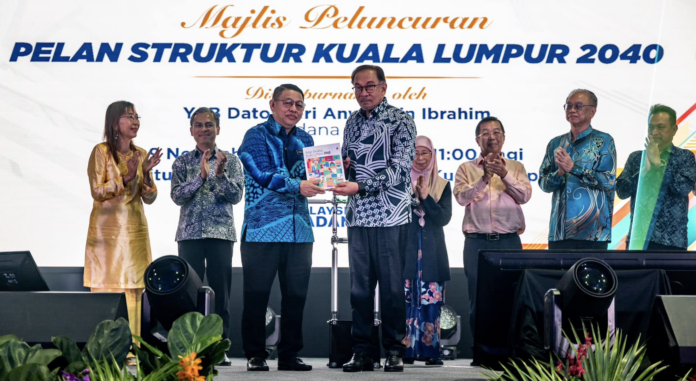KUALA LUMPUR, Nov 15 — Special housing for the elderly needs to be developed in Kuala Lumpur, as the federal capital is expected to become an ageing city by 2040, according to the Kuala Lumpur Structure Plan 2040 (KLSP2040).
KLSP2040 projects that the elderly population will be higher in 2040, namely at 17.3 per cent, compared to 9.2 per cent in 2025.
It said that the construction of homes specifically for the elderly should include retirement homes for independent living, retirement homes with medical assistance and nursing homes.
“The provision of facilities specifically for the elderly allows them to live independently. However, the viability of retirement residences with medical assistance in residential areas requires an in-depth study,” according to the document.
It is encouraged that these special homes be sold, leased or rented to this group and the houses are constructed either in the residential or commercial zone, depending on their suitability.
It is also recommended that residential areas hosting sizable retirement communities furnish appropriate social spaces and public facilities to cater to the needs of the elderly.
In addition, retirement homes need to be equipped with facilities that take into account the fundamental principles of universal design, such as elderly-friendly equipment including emergency and safety warning devices, allowing them to live independently and comfortably.
Kuala Lumpur City Hall (DBKL) must offer comprehensive guidelines for the planning and construction of elderly nursing homes that are in line with directives issued by relevant agencies for the well-being of the elderly
“Cooperation from higher education institutions, professional bodies and non-governmental organisations is also encouraged to aid in the development of these facilities,” read the document.
KLSP2040 also projects that Kuala Lumpur will experience a population profile shift in the future, with the number of households decreasing from 3.2 in 2025 to 3.0 in 2040.
As such, future planning and management of housing provision in Kuala Lumpur must account for anticipated shifts in the population profile and households.
In the meantime, KLSP2040 said that the provision of housing for persons with disabilities (PwD) is critical, and the collaborative efforts of various agencies need to be given attention to ensure that this group is not marginalised.
“The cumulative number of PwD registered in Kuala Lumpur in 2020 increased by 12.2 per cent, from 34,299 in 2019 to 38,590,” it said.
KLSP2040 said that the National Social Policy mandates that the government fulfil the needs of communities, families, and individuals, which include providing special housing for the PwD community.
Among the initiatives that need to be taken are allowing the disabled to rent low-cost houses or DBKL flats, in addition to providing suitable and easily accessible facilities such as ramps and parking spaces for the group.
Other initiatives include allocating a two per cent quota for PwD in each suitable residential area, as well as designing home spaces that fulfil barrier-free design and universal design standards, rules, and guidelines.
Gazetted on Oct 19, 2023, KLSP2040 now replaces KLSP2020 as a future planning document for Kuala Lumpur in driving the strategic development of the Malaysian capital indicatively until 2040.
















